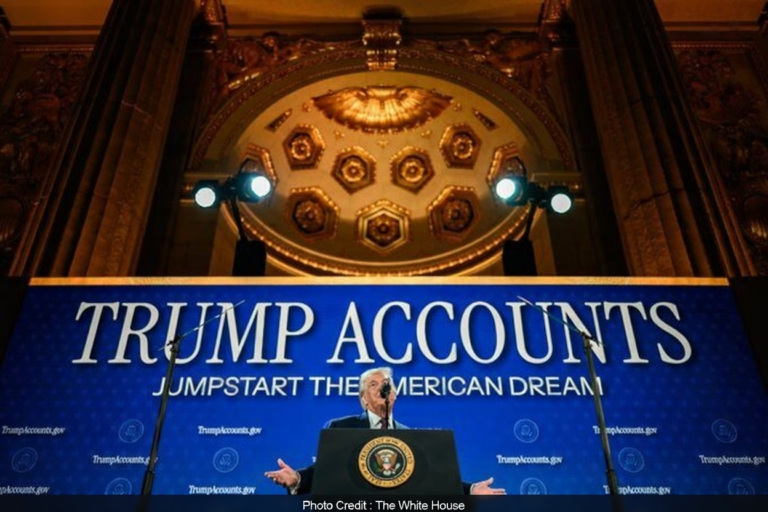
How TikTok Shop is helping businesses to thrive in Malaysia’s new retail playground
By Yusniza Kamarulzaman

You’re scrolling at 2am just to relax. A few swipes later, you see a flash deal: “RM0.01 offer now” The countdown timer ticks, the coupon pops up, and before you know it, a parcel is on its way to your doorstep. Welcome to TikTok Shop—the digital pasar malam that never closes.
TikTok has become more than a stage for entertainment; it is Malaysia’s newest retail mall, where storytelling, urgency, and authenticity converge. For businesses, this shift represents both a challenge and an opportunity. The rules of retail are being rewritten, and those who adapt quickly can reach audiences in ways previously unimaginable.
—
The big win for small businesses
Perhaps the most surprising impact of TikTok Shop is its levelling of the playing field. In our study, more than 70% of small business owners reported that TikTok gave them greater reach than any other platform. With nothing more than a smartphone and a bit of creativity, SMEs can capture attention, generate sales, and even build loyal communities.
But there’s a catch: the first three seconds are everything. If the video doesn’t hook viewers instantly, they scroll past. For smaller brands, this means that effort spent on the “opening moment”—a quirky line, a striking image, a quick demo—can determine whether their products sink or soar.
—
Who’s buying on TikTok?
Our research shows that the core shoppers are Gen Z and younger Millennials (18–34 years old). Yet the fastest growth is among women aged 25–34, particularly in semi-urban and rural areas. These consumers demonstrate “scroll-to-cart” behaviour—spontaneous purchases of affordable skincare, modest clothing, kitchen gadgets, baby products, and home-organisation tools.
For companies targeting working mothers, new homeowners, and young couples, TikTok is where these consumers live, scroll, and shop. Understanding this audience is essential: they are tech-savvy, price-sensitive, and motivated by content that blends practicality with aspiration.
—
Urgency sells
The psychology of TikTok Shop goes beyond storytelling. It taps into Malaysians’ love for bargains and the thrill of limited-time offers. Flash deals, add-on coupons, happy hours, and countdowns create a sense of urgency.
This “always-on sale” environment mirrors the atmosphere of a night market—crowded, lively, full of surprises. Consumers feel that if they don’t act now, they’ll miss out. For businesses, the takeaway is clear: promotions must be visible, creative, and time-sensitive. But they also need to be credible; overdoing gimmicks can erode trust.
—
The influencer effect
Influencers are not new, but TikTok has reshaped their role. While celebrity endorsements still exist, micro-influencers are often more persuasive. They appear relatable—“one of us”—and therefore their recommendations carry more weight.
However, genuineness is key. The moment audiences sense that a creator is pushing products too aggressively, the spell breaks. This is why behind-the-scenes clips, honest reviews, and lo-fi videos often outperform polished ads. For brands, partnering with influencers should not be about follower count alone; it’s about alignment of values, tone, and credibility.
—
Matching tone with brand identity
Not all content styles fit all brands. While humour or Gen Z slang may work for food, fashion, or gadgets, they can undermine trust for banks, airlines, or healthcare providers. In our research, around 30% of respondents said they perceived casual videos from premium brands as “off-brand.”
The implication for businesses is to tailor tone carefully. Authenticity matters, but so does professionalism. A mismatch between tone and brand identity can dilute positioning and confuse audiences.
—
Building trust through presence
Ultimately, what drives sales on TikTok is the perception of authenticity—what scholars call “social presence.” When consumers feel that they are interacting with real people rather than scripted marketers, trust rises.
This means businesses should focus less on cinematic perfection and more on being approachable. Human voiceovers, quick demos, customer testimonials, or simple “day-in-the-life” content can be more effective than expensive campaigns. On TikTok, relatability beats production value.
—
Lessons for Malaysian businesses
For Malaysian businesses, a few guiding principles stand out. The first is the importance of capturing attention quickly. On TikTok, the opening moments are everything—whether through a striking image, a witty line, or a quick demo, the hook must come almost instantly.
Equally important is knowing your audience. Growth is being driven most strongly by women in the 25–34 age group, particularly in semi-urban areas. They scroll with intent, respond to relatable voices, and have clear preferences for products that save time or improve everyday routines.
Urgency also plays a role. Flash sales and countdowns can be powerful, but credibility must be preserved. Consumers appreciate good deals, but they also know when they are being manipulated. Balance is key.
Influencer partnerships, too, can make or break campaigns. Micro-influencers often build more trust than celebrities, simply because they feel authentic and closer to their followers. For brands, choosing the right partner is less about follower counts and more about alignment of tone and values.
Finally, authenticity underpins everything. Social presence matters more than polish—people connect with voices, not with scripts. At the same time, tone must remain consistent with the brand’s identity. A joke or casual remark may work wonders for fashion or food, but it could feel inappropriate coming from a bank or an airline. Striking the right balance between relatability and professionalism ensures that the brand remains both trusted and memorable.
—
Final thoughts
TikTok is not just a passing trend—it is the new normal in Malaysian retail. It blends entertainment, urgency, and trust into a 24/7 shopping ecosystem. For businesses, the challenge is no longer about simply being visible. It is about being authentic, timely, and aligned with the expectations of a fast-scrolling audience.
The future of retail will not be decided in malls or megastores, but on screens small enough to fit in the palm of your hand. TikTok has shown us that selling is no longer about hard pitches. It is about stories, presence, and the ability to connect in real time.
So, the next time you hear someone say “TikTok made me buy it”, remember: behind that impulse is not just a clever video, but a new way of doing business—one that Malaysian companies can no longer afford to ignore.

Prof. Dr. Yusniza Kamarulzaman is a Marketing Professor and Dean of the Faculty of Business and Economics at Universiti Malaya.















